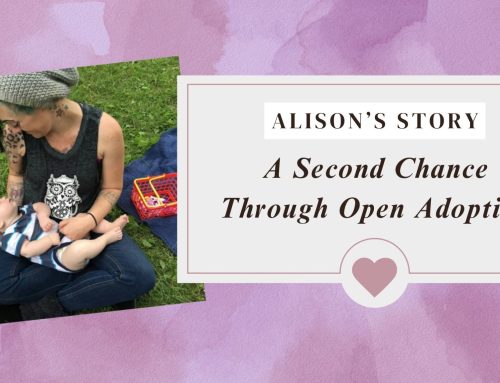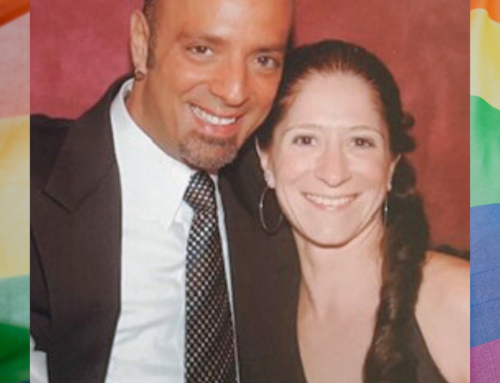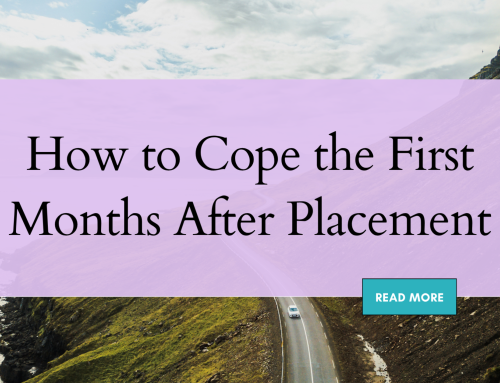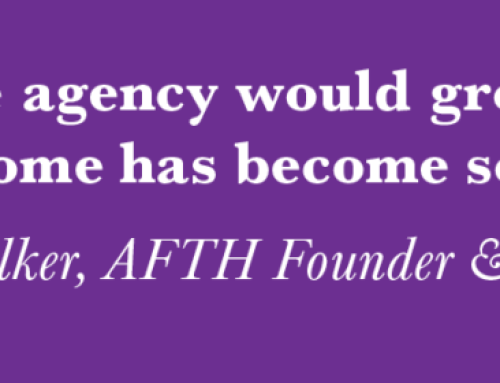Episode two of Adoptions From The Heart’s, Heart-To-Heart, podcast covers the topics of pregnancy, addiction, and adoption. Leading the conversation is Jenna Smith, Domestic Program Coordinator from AFTH. The panel of women speaking towards these topics are Amanda Aliberti, Adoption Counselor and Birth Parent Placement Services Coordinator, Alicia, an outreach worker with a recovery house, and Kristen and Alison. Alicia, Kristin, and Alison all battled addiction, are in recovery, and have placed children through AFTH.
Judgements and Stereotypes Surrounding Addiction
Addiction comes with stereotypes, but being addicted while pregnant comes with even more judgements from those who are uninformed. Amanda sheds light on the common misconception that while women can love their unborn child, that isn’t a magical fix-all. Addiction is a disease that is difficult to fight. If it were easy to stop using, addiction wouldn’t exist. Along with the judgment, most people do not understand that stopping drug usage while addicted and pregnant can harm the baby. It is much safer for babies to go through withdraw after birth. The women on the panel found themselves wishing for more people who understood their challenges, especially when it came time to deliver their babies at the hospital.
Judgement at the Hospital instead of Help
Each of these women found themselves with different issues from hospital staff while getting ready to give birth. Alison found herself having to repeat her adoption plan and drug history to almost every nurse that came through. She found herself wishing for more protection and support and only found some in Amanda, her adoption counselor. She found herself wanting someone to be there with her to run interference between her and the hospital staff.
Meanwhile, Alicia found herself with an opposite experience. She was clean while pregnant, and the nurses kept offering her Percocet despite her chart being flagged. The repeat offer angered her because it put her at risk. She also felt alienated that nurses kept asking her about sending her child to the nursery when she wanted to keep him with her until the adoptive parents arrived. Amanda pointed out that with AFTH, birth mothers always have the option to parent while they are a patient.
Kristin attempted to get clean while pregnant but relapsed. She felt ashamed and worried that her adoptive family would hate her and would no longer want her baby. She felt from her own experiences that people do not like people who relapse, and so she felt she had to hide her relapse. Hospitals drug test birth mothers and babies, so keeping that secret was never really an option. Fortunately, Kristin’s adoptive family never showed her anything other than support.
Need for Extra Support during Pregnancy
Jenna brought up the need for more health care professionals to be informed of the intricacies of dealing with women who are pregnant and addicted and placing a child for adoption. Amanda points out that birth mothers shouldn’t have to explain themselves repeatedly, that even though they are placing their child for adoption, it doesn’t mean they don’t want to hold the baby. Agency social workers can alleviate this feeling by speaking with hospital workers or a case manager for those in recovery. The goal is to have all these parties communicating in order for the birth mother to get through the placement and move forward in a supportive way after.
Each birth mother agreed that extra support while pregnant is necessary. They found themselves wishing for someone like them, a person who went through addiction and were recovery. Alison wished she had known the birth mothers from her support group before she gave birth. AFTH has since opened the support group to expecting parents to address this need. However, women who have placed, are struggling with addiction, or are recovering still need groups designed specifically for them. These groups can share personal experiences to provide options from women who have been in their shoes.
Emotional Support
A common fear for birth mothers is that stigma of addiction will mean no family will want their baby. However, Alison was shocked to find a binder of possible adoptive parents who wanted her baby. The support of adoptive parents is important to a birth mother’s mental health. Kristin found the whole process easier when she realized her child’s adoptive parents understood that addiction is a disease and that they still saw her as a person underneath it.
In terms of support, Alicia found that by speaking about her experiences to help others, it helped her find acceptance. Doing so helped her come to terms with her decision and feel she made the right choice. The feeling of being accepted and valued despite the hardships is an important part of the recovery process.
Advice from the Birth Mothers
Being judgment-free especially within a hospital setting is imperative. Training staff will go a long way in helping birth mothers in their placement journey. This training needs to cover addiction and adoption and how they directly connect to a patient’s mental wellbeing. Placing a child is a time of loss and grief and can be triggering to newly recovering birth mothers. Therefore, there needs to be support and empathy involved in treatment for those juggling addiction, pregnancy, and adoption. One person can make the difference in a person getting or staying clean.
To listen to this podcast, go to: S2E2- Addiction, Pregnancy, and Adoption





Leave A Comment